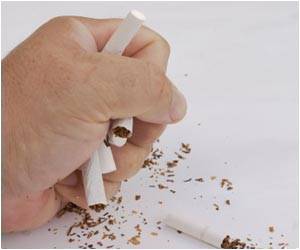
‘Along with several others, about 52 metabolites are altered in those individuals who quit smoking. Within two to three months of quitting smoking, lung function begins to improve and the risk of heart attack begins to diminish.’
Tweet it Now
Smoking kills more than 7 million people worldwide annually and is one of the most important risk factors for six of world's eight leading causes of premature death, according to the World Health Organization. But, soon after a person quits the body begins to repair some of accumulated damage caused by smoking. In fact, according to the U.S. Centers for Disease Control and Prevention, within two to three months of quitting, lung function begins to improve and the risk of heart attack begins to diminish.
A previous study published in 2013 suggested that metabolic changes which occur after smoking cessation may kick start these physiological improvements.
Building on this work, Nikola Pluym and colleagues sought to hone in on what alterations smoking causes in the body's metabolic pathways and whether any of these changes are reversible after quitting.
The researchers regularly collected blood, urine and saliva samples from male volunteers who were trying to quit smoking up to three months after smoking cessation.
Advertisement
To ensure compliance, they measured levels of carbon monoxide and cotinine, a nicotine metabolite which can be detected in urine and saliva over several days after someone has smoked.
Advertisement
Overall, the researchers identified 52 metabolites that were significantly altered after the subjects stopped smoking, including several that showed reversible changes toward that of a nonsmoker's metabolic profile.
The team concluded that these compounds could one day be used as biomarkers for smoking-induced biological changes. Moreover, the researchers state that the published method would be also useful for evaluating the benefits, if any, for smokers when switching to new products like electronic cigarettes.
Source-Eurekalert















